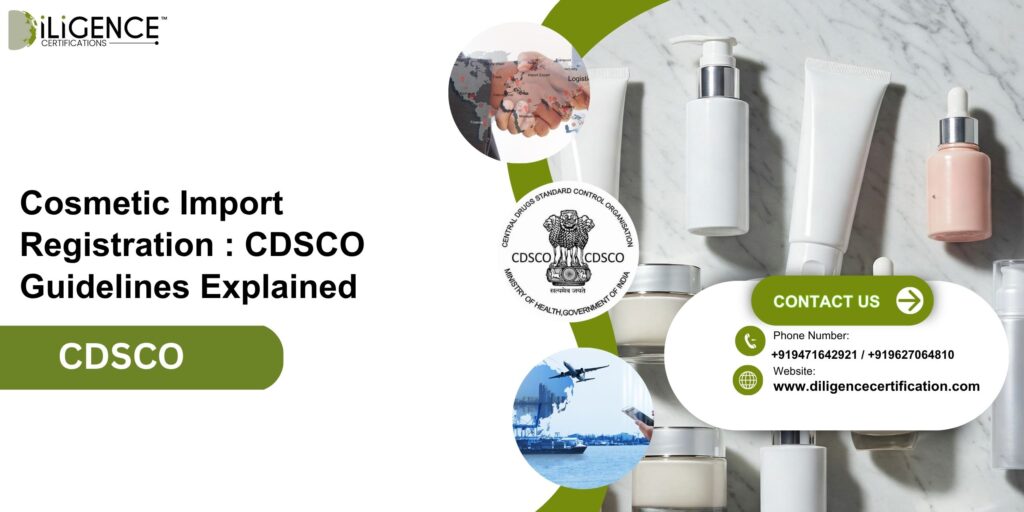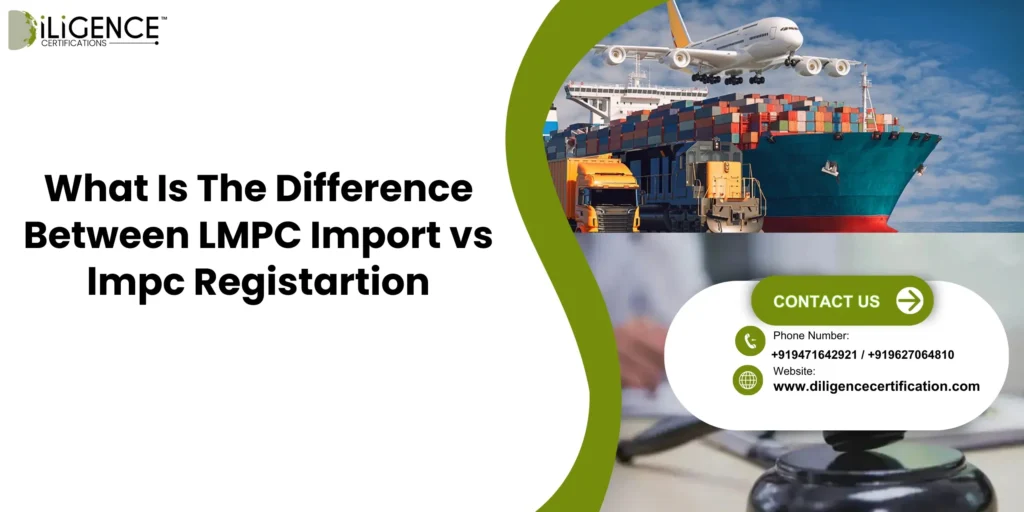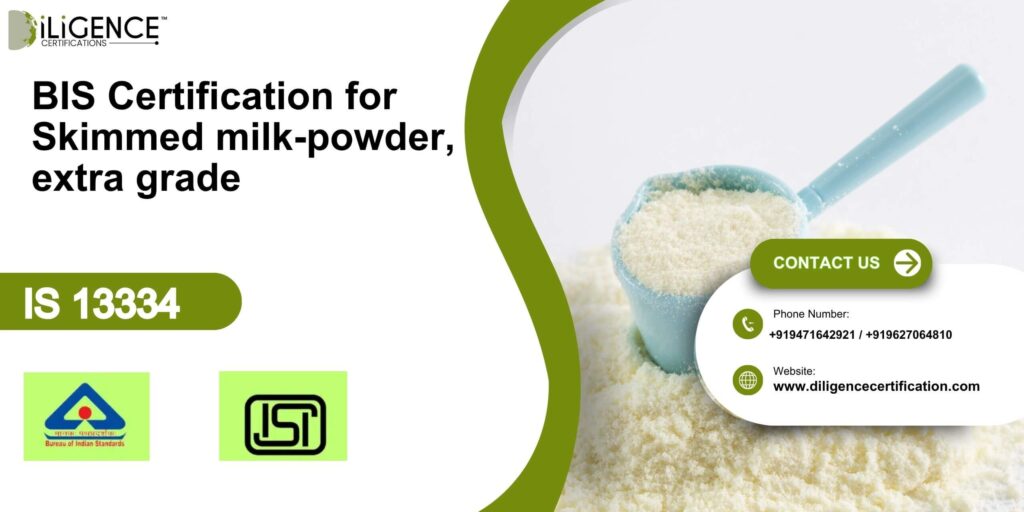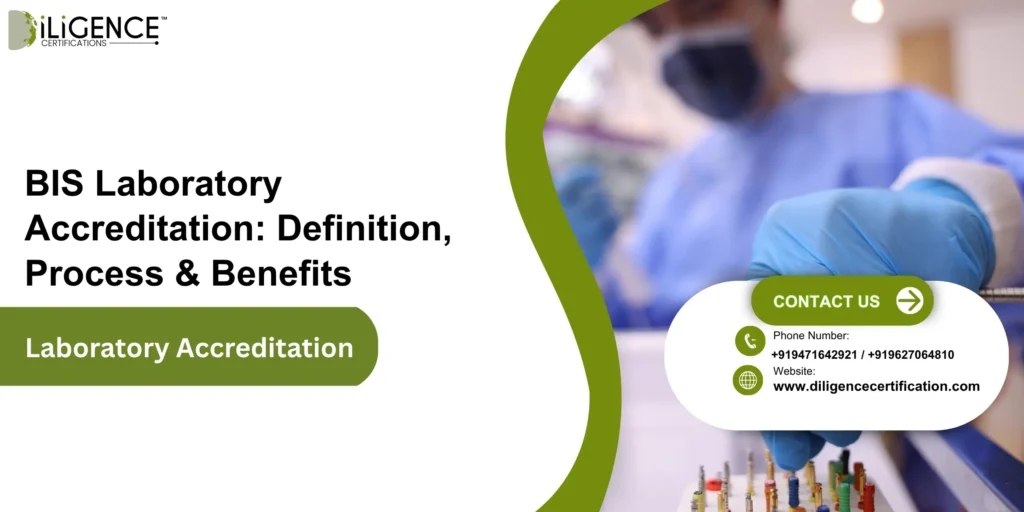- As per Indian law, all cosmetics that are imported must be registered with the CDSCO in order to lawfully enter the market.
- The documents that are required to enter in ship Cosmetic Registration include: Form COS-1, complete ingredients list, label information, Free Sale Certificate, license to manufacture, and certificates of declaration regarding regulatory requirements.
- Foreign brands are required to work with a licensed importer in India, a licensed subsidiary, or an Indian agent with an attested Power of Attorney.
- The process of registration includes classification, preparation of the documents, submission to the portal under the DGCI (Drugs Controller General of India), responding to DGCI queries, and will take at least 3-6 months.
- Once registered, in addition to physical adherence, your products must remain in compliance with safety requirements, labeling, GMP, renewals, etc. Often, consultants and organizations can help make this approval go smoothly and monitor adherence.
Introduction
You have developed the most innovative anti-aging serum in South Korea, and Indian beauty fans are waiting to purchase it. To enter into India’s $20 billion cosmetics market, you need to secure a CDSCO Cosmetic Import Registration which allows your product to clear customs and get onto store shelves. This guide will provide you with all the information you need so that you can complete the registration process confidently, regardless if you are a global brand, indie startup, or importing as an Indian brand.
Understanding Cosmetics Under Indian Law
Before we look into the registration process, let’s clarify what a “cosmetic” refers to under India’s regulations.
As per the Drugs and Cosmetics Act, 1940, as amended, and the Cosmetics Rules, 2020, cosmetics refers to any article that is used on the human body to cleanse, beautify, or alter appearance by being rubbed, poured, sprinkled, or sprayed.
Using this very broad definition, the subsequent products all could qualify as cosmetics:
Skincare Products:
- Face creams, lotions, and moisturizers
- Sunscreen and sun protection products
- Anti-aging serums and treatments
- Cleansers, toners, and exfoliators
Hair Care Products:
- Shampoos and conditioners
- Hair oils, serums, and styling products
- Hair colors and dyes
- Hair treatments and masks
Color Cosmetics:
- Foundations, concealers, and BB creams
- Lipsticks, lip glosses, and lip balms
- Eye shadows, eyeliners, and mascaras
- Nail polishes and nail care products
Personal Care Items:
- Deodorants and antiperspirants
- Bath soaps and body washes
- Perfumes and fragrances
- Talcum powder and body powders
Unlike drugs that treat or prevent diseases, cosmetics are intended to beautify, cleanse, or alter appearance without claiming therapeutic benefits. The moment you claim your face cream “cures acne” instead of “helps reduce blemishes,” you’ve crossed into drug territory with much stricter regulations.
The Role of CDSCO in Cosmetic Import Registration
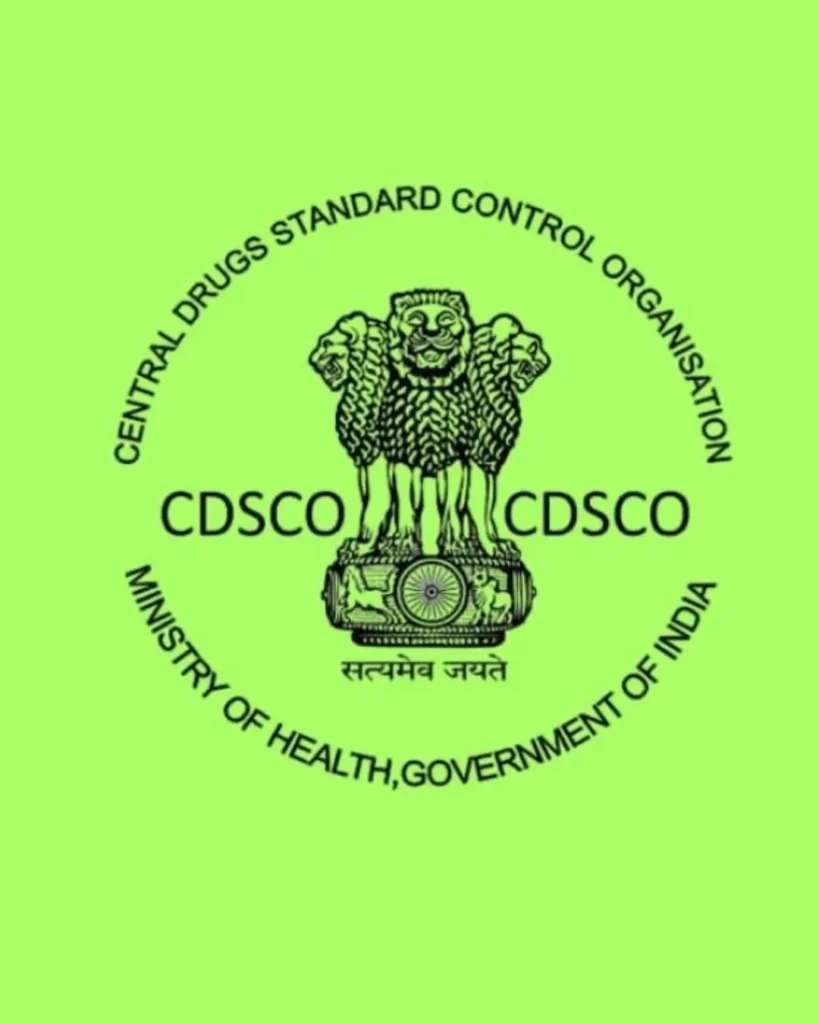
The Central Drugs Standard Control Organization (CDSCO) acts as India’s gatekeeper for imported cosmetics. Under the Ministry of Health and Family Welfare, CDSCO serves as the “quality control” authority for any cosmetic product being imported into India.
What Is CDSCO’s Role?
Review and Evaluate Import Applications: The CDSCO will assess your submission to ensure it is complete and meets the country regulations
Issue NOCs: The CDSCO will provide No Objection Certificates for every approved product
Establish Safety Standards: The CDSCO will ensure that safety, quality, labeling standards are met for imported cosmetics
Address Consumer Complaints: The CDSCO receives complaints for adverse reactions and provide technical assessment for quality complaints
Support Post-Market Surveillance: The CDSCO will monitor ongoing compliance in the marketplace through inspections and surveillance
Respond to Public Questions: the CDSCO will all provide assistance and answer questions regarding regulations and requirements
You can think of the CDSCO as the passport officer for your cosmetic product. Just like you need legitimate documents to enter a country, approved products will need CDSCO approval to legally enter the Indian market.
Why Is This Registration So Important?
Legal Requirement: The Drugs & Cosmetics Act requires registration – plain and simple.
Consumer Protection: Protects consumers from products with harmful ingredients or unsafe limits.
Quality Control: Confirms products have been manufactured at internationally acceptable levels.
Market Permission: Your products will be confiscated at customs if they are not registered.
Brand Integrity: Brand integrity is maintained when operating legally; you avoid risk of repercussions.
Business Credibility: Most large retailers and key e-commerce channels exclusively sell products with CDSCO certification.
One beauty brand executive told us: “We thought we could launch on Amazon India in the first few months and figure out registration afterwards. Wrong choice. Our whole shipment sat in customs for three months, preventing us from selling this entire category during the festive season and losing trust with many customers who had pre-ordered the products.”
Who Can Apply for CDSCO Cosmetic Import Registration?
The positive aspect is that CDSCO allows flexibility regarding who can apply for cosmetic import registration. You can choose from:
1. Authorized Indian Agent
This is the most typical approach for foreign brands. You appoint a registered Indian company or person as your authorized agent in India. They will take care of meeting your compliance obligations as an importer, completing the application documents required, and communicating with CDSCO for you.
Example: When French luxury brand L’Oréal wanted to import their latest skincare line, they worked through their authorized Indian company in India to perform CDSCO registration. This agent handled all documents and regulatory questions for them.
2. Subsidiary of A Foreign Manufacturer in India
If your company has a subsidiary, branch office, or joint venture in India, that company can make the application directly to CDSCO for approval.
3. The Manufacturer
If a foreign manufacturer has the appropriate Indian business registrations, as well as a legal presence in India, the manufacturer can apply directly for registration. Nonetheless, this is less common due to the difficulties of dealing with foreign-based persons and/or entities, and the Indian regulatory authorities.
4. Any Indian Importer
Registered cosmetic importers in India can apply for registration to import products from foreign manufacturers. This is especially useful for distributors who want to bring in multiple brands.
Documents Required for CDSCO Cosmetic Import Registration
It is important to properly complete your documentation as missing or talking certain forms may lead to delays in approval. Here are some of the key required elements:
Cover Letter – Give the reason for documentation (new registration, re-registration, new pack size, changes to formulation / agents … etc.)
Form COS-1 & Part-1 – Details on the product and a complete list of ingredients including the concentrations and INCI names.
Ingredient Composition – Complete information on each ingredient, the quantity, and the function.
Label Information – The legal label must have the manufacturer’s details and the details of the Indian agent, product name, batch number, expiry date, directions for use, list of ingredients, precautionary statement, and the country of origin.
Manufacturing License & Free Sale Certificate – Proof the product is manufactured by a licensed manufacturer and legally sold in the country of origin.
Mandatory Declarations – Non-animal testing, limits on heavy metal levels, hexachlorophene free status, and no banned substances.
Supplementary Documents – Pack insert, receipt fee, Power of Attorney, Certificate of Analysis, stability data, and compliance with BIS if applicable.
The Cosmetics Rules, 2020 also put more specific requirements around documentation making the counsel of an expert necessary to avoid rejection
Step-by-Step CDSCO Cosmetic Import Registration Process
Here’s a shortened version of your step-by-step registration process:
- Determine Product Classification – Confirm your product qualifies as a cosmetic under Indian law, contains permitted ingredients, and doesn’t claim therapeutic benefits.
- Appoint an Authorized Indian Agent – Choose a reliable partner with regulatory experience and draft a notarized Power of Attorney outlining responsibilities and scope.
- Prepare Documentation – Gather all required documents, including ingredient lists (INCI names), labeling, declarations, and a recent Free Sale Certificate; verify everything carefully.
- Submit Online Application – Register on the CDSCO portal, fill Form COS-1, upload documents, pay the fee, and keep copies of all submissions.
- Respond to DGCI Queries – Address any queries about ingredients, labeling, or safety promptly and professionally with your agent’s support.
- Receive Registration Certificate – After approval, CDSCO issues the certificate with product and manufacturer details, registration number, validity (usually 3 years), and any conditions.
Typical timeline: 3–6 months depending on complexity, documentation, and query response time.
Regulations and Compliance Requirements
Familiarity with the regulatory environment informs you of rights and responsibilities throughout the lifecycle of your product, and not just during registration, when in India.
Primary Legislation:
1. Drugs and Cosmetics Act, 1940
This is the primary legislation that regulates the import, manufacture, distribution, and sale of drugs and cosmetics in India. It is the basis for the legality for the CDSCO to supervise compliance and to prosecute non-compliance.
2. Cosmetics Rules, 2020
These rules replaced the older 2011 rules and set more stringent safety criteria and compliance guidelines. The more important components of these Rules include:
- Disclosure of ingredients is mandatory
- Use of animals for testing purposes is prohibited
- Maximum acceptable limits for heavy metals
- List of banned and restricted ingredients
- Labeling requirements
- Adverse event reporting responsibilities
Continual obligations to maintain compliance:
Doing a registration is just the first step. You will have ongoing obligations for compliance with the rules which include:
Labeling compliance: Labeling of a product will require the accuracy of the information provided to the CDSCO with the original registration. Any changes to the labeling will require CDSCO approval before it becomes effective.
Safety criteria: The product must continue to meet safety criteria. Safety criteria, for example, may include:
- Limits on microbiological loads
- Limits for heavy metals
- Limitations on pH levels
- Limits on concentration of active ingredients
Good manufacturing practices: The manufacturing facility must conduct operations according to good manufacturing practices, as well, the facility will be made available for the inspector/s assigned.
Keep Records: Keep complete records of:
- Import shipment: volumes, dates, batch numbers
- Distribution to retailers and distributors
- Customer complaints and adverse events
- Quality control testing
Renewal requirements- Registration certificates in CDSCO are generally valid for up to three years, if you do not apply for renewal three months before expiry, there will be a lapse and you will have to re-register your product.
Consequences for non-compliance:
- Using product without registration or breaking any other cosmetic regulations may result in:
- Fines: Up to Rs. 10 lakhs depending on severity
- Product Seizures: Customs can take unregistered products or regulators
- Import ban- your company can be blacklisted from imports
- Criminal charges: if serious, up to three years
- Reputation: public recalls and other issues with compliance can plague credibility of your brand.
Why Choose Diligence certifications as CDSCO Consultants
It is possible to obtain cosmetic registration independently, but it is not an easy task – especially if you do not know how the procedures operate in India. Here are some reasons why you should consider obtaining professional consultancy:
Advantages of Professional Consultancy:
1. Errorless Documentation
Consultants know how the CDSCO wants you to document it, they will provide:
- Completed forms from day 1
- Helpful tips on what documentation will be needed
- Important ingredient lists that use proper nomenclature
- Product labels that meet expectations
- Disclosure statements that are formatted properly
2. Filling out and getting documents approved faster
- Experience matters! Professional consultants know how to present the application for faster approval, as well they:
- Understand common queries when submitting documentation and avoid them
- Have working relationships with the people working at CDSCO
- Will handle fast queries when there may be a query
- Can track your application and take action when required
3. Expertise in Regulatory Practices
With industry changes all the time in the cosmetic registration regulatory space:
- Consultants will know when there are
- New ingredients that are not allowed
- Revised labeling
- Revised processes for how the registration takes place
- Revised BIS standards
- CDSCO policy circulars
4. Support Totally Beyond a Cosmetic Product Registration
Consultants can help you with:
- Official classification of the product
- Help with formulations
- Labeling considerations
- Facilitating appointments for agents
- Changing names after registration
- The renewal process
- Auditing compliance
5. Price vs Cost
Consultancy posits an additional fee, but consider the full-cost variation of doing it yourself:
- Multiple rejections of your applications
- Additional time to get products to market
- The ability to sell products sooner rather than later
- Delayed interim staff time to learn a new regulatory process to submit
- Potential fines on top of the cost of the registration application if it is not completed on time.
Proven Track Record:
Leading cosmetic registration consultancies in India typically have:
- Thousands of successful registrations across skincare, haircare, and color cosmetics
- 95%+ first-time approval rates due to meticulous documentation
- Average processing time of 3-4 months versus 6-8 months for DIY applications
- Dedicated teams of regulatory experts and documentation specialists
- Experience with global brands from USA, Europe, Korea, Japan, and beyond
What to Look for in a Consultant:
- CDSCO registration specialization
- Transparent fee structure
- Client testimonials and case studies
- Clear communication and responsiveness
- Post-registration support services
- Knowledge of international cosmetic regulations
Conclusion
Obtaining CDSCO Cosmetic Import Registration is more than a regulatory requirement; it is your gateway into one of the most exciting beauty markets. With over 1.4 billion potential customers and a middle class that is increasingly interested in global beauty products, India presents the massive opportunity for cosmetic brands from around the world.
Key Takeaways:
- CDSCO registration is required for all imported cosmetics, there are no workarounds.
- Proper paperwork and ingredient declaration are extremely important in obtaining approval.
- This process usually takes between 3 and 6 months if taken correctly.
- An international brand has to work through an authorized Indian agent.
- You will need to be compliant going forward so you can access the market if you have been approved.
- Consulting with professionals makes the process easier and increases the likelihood of being approved.
Indian cosmetic consumers are developed, thoughtful about consumers, and willing to pay premium prices for effective products. They are entitled to safety, transparency, and regulatory compliance when purchasing which is what the CDSCO is meant to represent.
Whether it is a luxury skincare line, an indie hair care brand, or a color cosmetics brand, you will need to be compliant with the Drugs and Cosmetics Act and Cosmetics Rules, 2020, You will need to comply, it is not an option, and it lays the groundwork for the future of your Indian business.
Frequently Asked Questions
What is the CDSCO Cosmetic Import Registration?
CDSCO Cosmetic Import Registration is the approval authority from the Central Drugs Standard Control Organization (CDSCO) to allow foreign cosmetic brands to be imported and legally sold in India.
Is registration needed for all imported cosmetic products?
Yes. Every product that is imported into India requires CDSCO registration in order to get through customs and sell in the market.
Who can submit an application for cosmetic import registration?
An application can be submitted by the foreign manufacturer, an authorized Indian agent/representative, a local Indian subsidiary company, or a licensed importer.
What is the timeline from submission to registration?
Typically the process takes about 3 to 6 months depending on the complexity of the product, whether the documentation is complete, and the review process by CDSCO.
How long is the registration certificate good for?
The CDSCO Cosmetic Import Registration Certificate is generally valid for 3 years from the date of issue.
Can I ask to not have to register cosmetics for test or other research and evaluation purposes?
You can ask CDSCO for permission to import the cosmetics by special import permit for testing, research and evaluation purposes, but no commercial import is permitted until registered.
What are the consequences of importing or selling unregistered cosmetics?
Unregistered products may be seized at Customs, and the importer may face fines or import bans, or referral for prosecution under the Drugs and Cosmetics Act.
Am I required to renew my registration?
Yes. Registration renewal is required prior to the expiration date- best completed 3 months beforehand so that the products do not lose access to the market in the interim.
After registration, can I amend the details (e.g., label, formula)?
If there are changes to the formulation, labeling or manufacturer, any changes to the registration must be approved by CDSCO before they can be implemented.
Should I work with a consultant to assist in this process?
While it is not a requirement to work with a consultant, working with a consultant who has experience with CDSCO can greatly decrease delays, limit errors in preparation of documents, and improve prospects for approval.






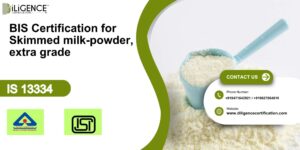

 BIS Certification
BIS Certification
 CDSCO
CDSCO
 CPCB
CPCB
 LMPC
LMPC
 WPC Approval
WPC Approval
 Global Approvals
Global Approvals
 TEC
TEC
 ARAI
ARAI
 BEE
BEE
 ISO Certification
ISO Certification
 Drone Registration
Drone Registration
 NOC For Steel
NOC For Steel



















 Business Registration
Business Registration















 Legal Services
Legal Services
